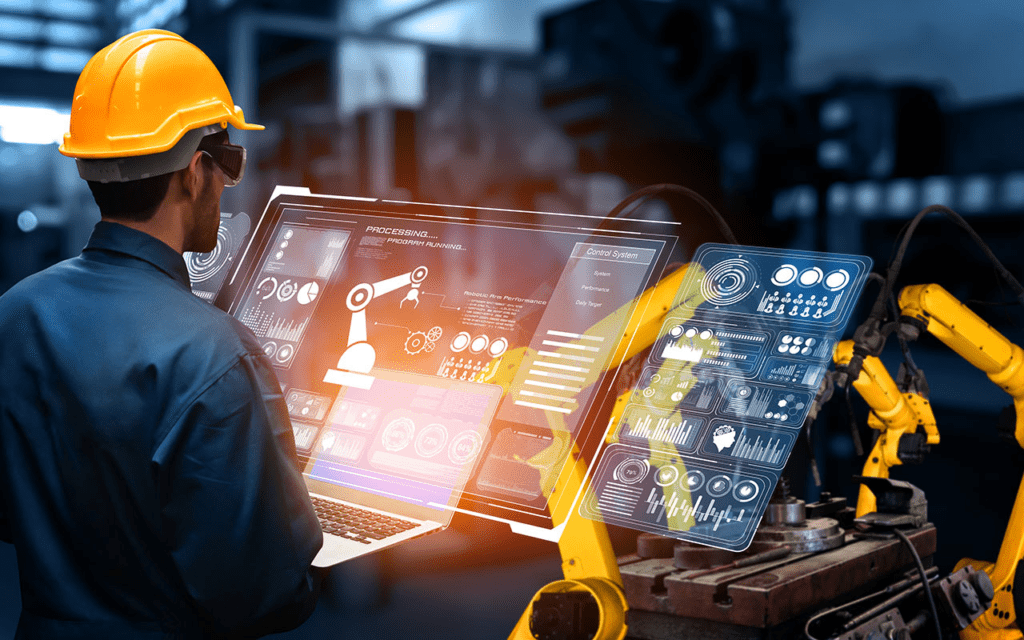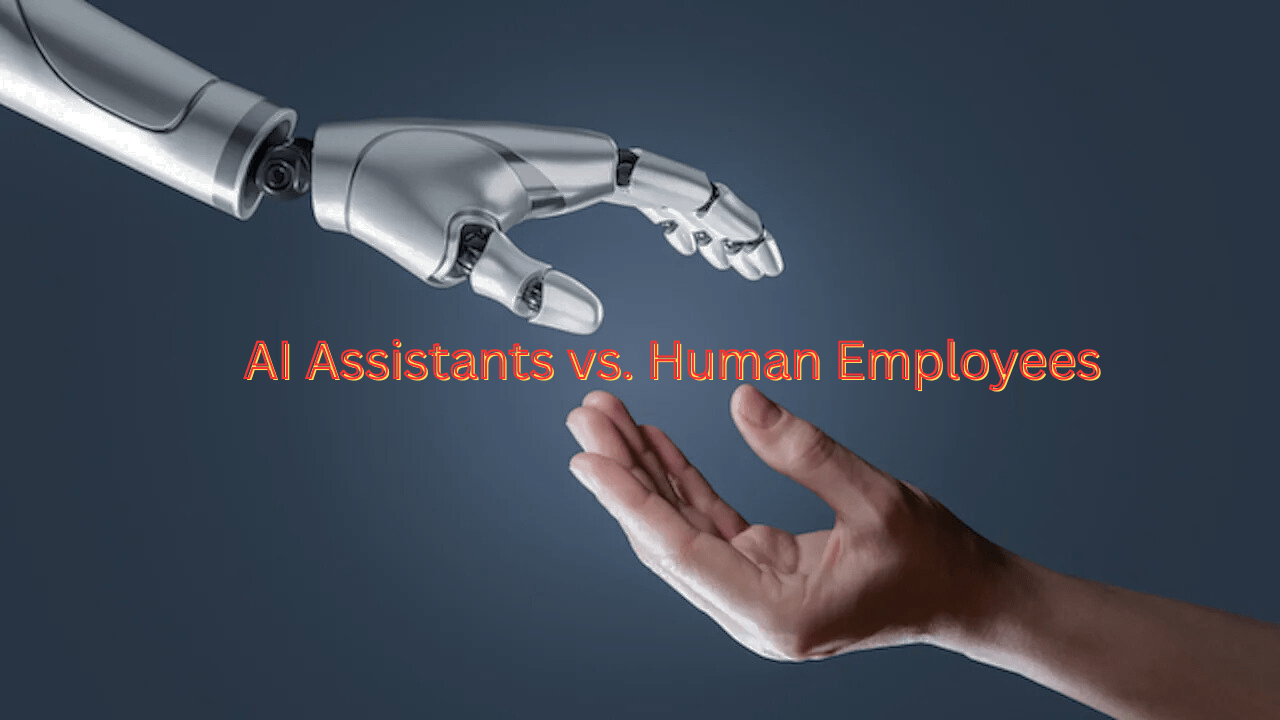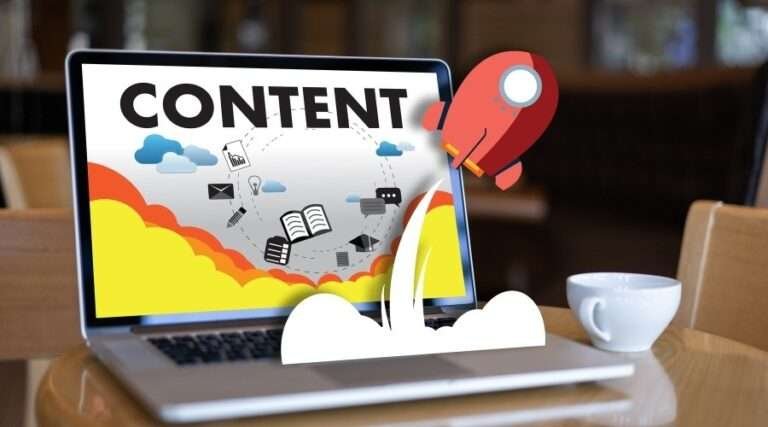AI Assistants vs. Human Employees: Who Wins in 2025?
Introduction
From being a sci-fi dream, artificial intelligence (AI) is now a crucial component of everyday corporate operations. The argument over whether AI assistants can perform better than human workers has intensified as their capabilities increase. This debate is not merely theoretical as 2025 approaches; it is influencing recruiting practices, business structures, and the nature of labor in general.
We’ll examine the advantages and disadvantages of both AI helpers and human workers in this thorough comparison. We’ll also go over where each works well, where it doesn’t, and how companies may use both to create operations that are more robust and resilient.
Understanding the Basics
What Are AI Assistants?
Software applications driven by machine learning, natural language processing, and other AI technologies are known as AI assistants. They can read data, comprehend voice commands, automate activities, and help with both straightforward and intricate procedures. Enterprise technologies like Salesforce’s Einstein AI, text-based bots like ChatGPT, and voice-based assistants like Alexa are a few examples.

What Roles Do Human Employees Fulfill?
Human workers carry out a wide range of functions, from leadership and customer interaction positions to operational and analytical responsibilities. Humans, as opposed to AI, contribute emotional intelligence, flexibility, and the capacity for abstract or moral thought—elements that are frequently crucial in workplace dynamics and business decision-making.
The Competitive Landscape: AI vs. Humans
Scope of Responsibilities
AI assistants are often task-specific, designed to carry out specific tasks with a high degree of accuracy. In contrast, human employees are multifaceted. They are able to make snap decisions, change between irrelevant tasks, and adjust to changing circumstances.
Working Styles and Capabilities
AI assistants use data-driven logic and pre-established algorithms. Although they are restricted by their programming, they consistently perform. Humans are creative, intuitive, and frequently perform well in situations that are unclear and difficult for AI to understand.
Strengths of AI Assistants
Speed and Operational Efficiency
AI helpers are capable of carrying out intricate computations, retrieving data, and making choices in a matter of seconds. They enable firms to scale operations more quickly by removing delays and cutting down on task completion time.
Constant Availability and No Downtime
AI doesn’t require holidays, breaks, or sleep. It can work around the clock, guaranteeing continuous operational assistance. In international marketplaces where client interactions take place across time zones, this is particularly beneficial.
Cost Savings in the Long Run
Even though AI may need a large initial investment, it typically leads to long-term cost savings. AI lowers error rates, cuts down on HR expense, and does away with the need for many workers to complete the same activity.
Ability to Process Big Data Accurately
Data is what AI lives on. A human team would need a lot more time and effort to sort through large datasets, find patterns, and produce useful insights than it could.
Strengths of Human Employees
Emotional Intelligence and Empathy
Humans possess the ability to read tone, body language, and emotional cues—skills that are critical in a variety of fields, including healthcare, leadership, and customer service. Despite advancements, AI still lacks the complexity to properly perceive emotions.
Creative Problem Solving
Humans possess the ability to read tone, body language, and emotional cues—skills that are critical in a variety of fields, including healthcare, leadership, and customer service. Despite advancements, AI still lacks the complexity to properly perceive emotions.
Adaptive Thinking in Unstructured Environments
Humans are able to change course quickly in situations that are unpredictable or dynamic. AI assistants find it more difficult to deal with chaos or novelty since they are constrained by their training data and rules.
Human Interaction and Relationship Management
Relationships are just as important in business as efficiency. Human workers are excellent at establishing rapport, cultivating trust, and negotiating social situations—skills essential for retaining clients and collaborating internally.
Scenarios Where AI Dominates
Automation of Repetitive Tasks
AI is particularly good at data entry, scheduling appointments, filtering emails, and processing orders. It boosts organizational productivity and lessens monotony for human workers.

Real-Time Data Analysis and Reporting
AI can track user activity, assess metrics instantaneously, and provide insights that let organizations take immediate action. In sectors like marketing, banking, and e-commerce, this offers a competitive edge.
AI in Customer Support and Virtual Assistance
AI chatbots are increasingly widely used by businesses to respond to consumer inquiries. Without human tiredness, these bots manage large volumes, deliver reliable service, and fix problems in a matter of seconds.
Scenarios Where Human Talent Prevails
Strategic Decision-Making and Leadership
AI is capable of making recommendations, but strategy is more than just data. Company culture, ethics, long-term effects, and intuition are all factors that human leaders take into account. These are attributes that machines cannot duplicate.
Innovation and Ideation
Unexpected inspiration or a singular personal experience are frequently the source of groundbreaking invention. AI only iterates based on past data, whereas humans come up with new ideas that advance industry.
Crisis Management and Ethical Judgement
Humans evaluate intricate moral, social, and emotional factors in emergency situations. Because of its programming limitations, AI may make poor judgments or miss the subtleties needed to make important decisions.
Industry-Specific Impact in 2025
AI and Human Roles in Healthcare
AI supports data management, individualized treatment plans, and diagnostics. However, ethical healthcare practices, surgical judgments, and bedside manners cannot be replaced by human physicians and nurses.
The Transformation of Retail and E-Commerce
AI conducts transactions, makes product recommendations, and maintains inventories. Human interaction is still necessary for in-person sales, brand narrative, and customer service, though.
Marketing and Advertising in the Age of AI
AI predicts customer behavior, distributes material automatically, and evaluates the effectiveness of campaigns. Emotional message, brand identity, and creative direction are still the purview of human marketers.
The Modern Manufacturing Industry
AI-powered machines increase output, cut waste, and operate automated manufacturing lines. However, human monitoring preserves ethical norms, manages unforeseen problems, and assures quality control.
Collaboration Over Competition
Augmenting Human Efforts with AI Tools
AI is being used by many companies to increase productivity rather than to replace people. AI tools are increasingly used by staff members to conduct research more quickly, produce drafts, identify trends, and improve decision-making.
Enhancing Business Output Through Hybrid Teams
Better results are achieved when AI speed and human inventiveness are combined. A marketing team might, for instance, utilize AI to create content while humans polish the voice, tone, and narrative.
Limitations of Relying Solely on AI
Ethical Dilemmas and Decision Biases
Biases in training data are reflected in AI systems. They may make unjust or immoral choices if they are not closely monitored, particularly when it comes to hiring, lending, or law enforcement.
Risk of Overdependence and System Failures
Over-reliance on AI makes a system more susceptible to vulnerabilities, cyberattacks, and “black-box” decision-making, which produces inexplicable results.
Job Losses and Economic Consequences
Restructuring entire industries puts millions at danger of losing their jobs. This change necessitates having meaningful discussions about social safety nets, reskilling initiatives, and universal income.

Preparing for the Future of Work
Reskilling and Upskilling the Workforce
To help employees remain relevant, businesses and educational institutions must make investments in educating digital literacy, data interpretation, critical thinking, and emotional intelligence.
Policy Making and Ethical AI Governance
To guarantee that AI is created and used in an ethical manner, regulations are required. This covers guidelines for openness, responsibility, confidentiality, and fair access.
Expert Insights and Forecasts
What Analysts Say About AI and Jobs in 2025
According to McKinsey, up to 30% of tasks could be automated by 2030, but fewer than 5% of jobs will be fully automated. The focus is shifting from elimination to transformation.
Long-Term Vision for Human-AI Partnerships
In the workplace of the future, experts see AI handling the “how” while humans determine the “why.” Businesses who cultivate this collaboration are probably going to be at the forefront of innovation and sustainability in their respective sectors.
Conclusion
It is oversimplified to say that AI will totally replace people. The truth is much more complex. AI is excellent at processing data, being precise, and being efficient. Creativity, leadership, and emotional involvement are traits that humans find most fulfilling. Success in 2025 won’t go to one over the other; rather, it will go to those who can successfully combine the two.
Businesses will be more flexible, customer-focused, and future-proof if they deliberately combine AI capabilities with human competencies. It’s time to ask “How can we win together?” instead of “Who wins?”
Frequently Asked Questions (FAQs)
1. Will AI fully replace human employees in the near future?
No. AI is more likely to change employment than to completely replace them. While technology can automate certain operations, it lacks the human characteristics required for many positions.
2. What kinds of jobs are most threatened by AI?
The jobs that are most susceptible to automation are those that involve repetitive or rule-based operations, such regular bookkeeping, data input, and basic customer support.
3. Can AI and human employees work side by side?
Indeed. In actuality, companies are using hybrid teams more and more, where humans provide strategic and emotional depth while AI boosts productivity.
4. Is AI affordable for small and medium-sized businesses?
Indeed. Nowadays, a lot of AI technologies are offered on reasonably priced subscription plans, so even startups and small businesses may use them.
5. What skills should professionals develop to remain relevant in the AI age?
To remain competitive, professionals should concentrate on digital literacy, creativity, critical thinking, emotional intelligence, and adaptability.







